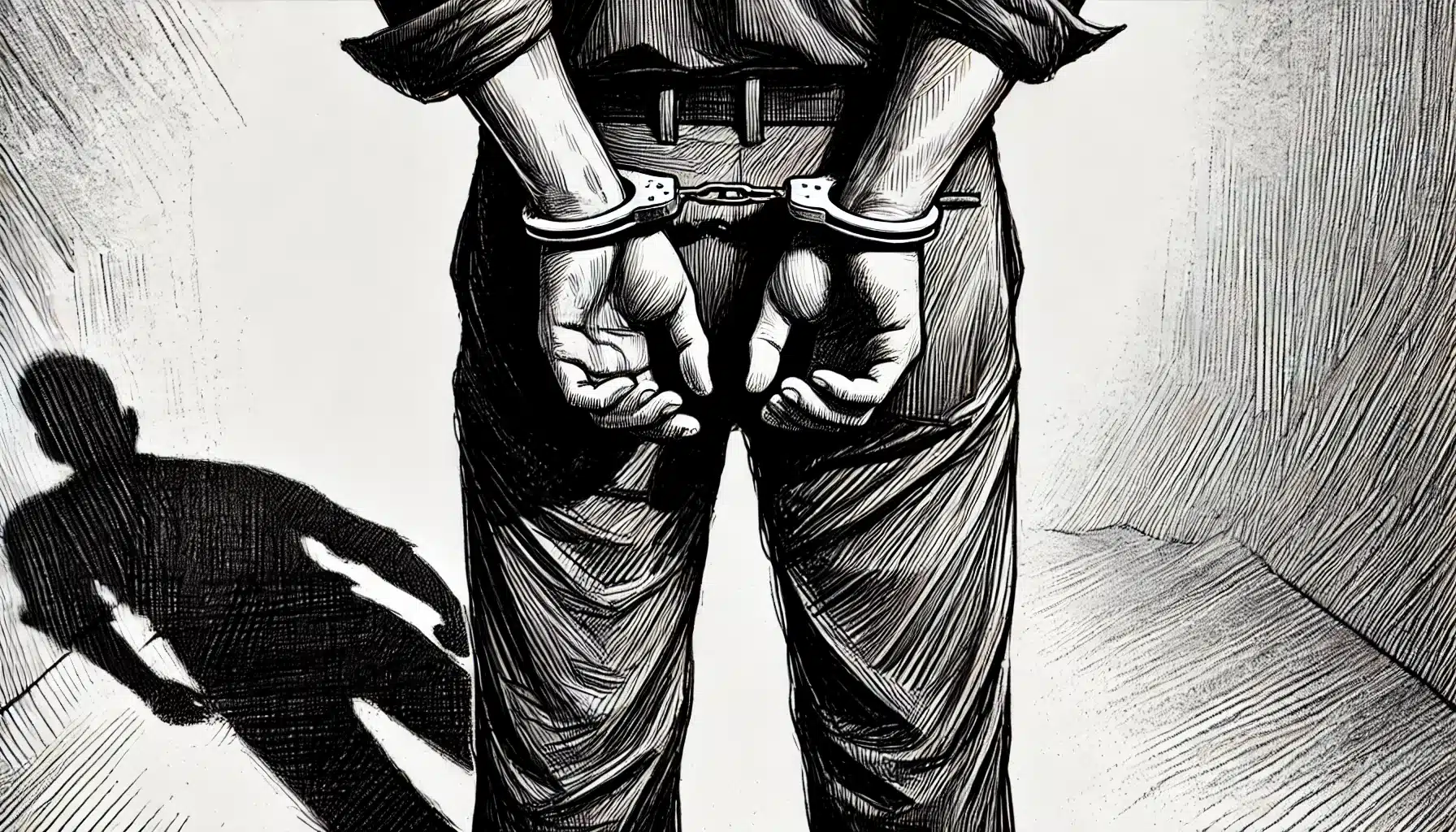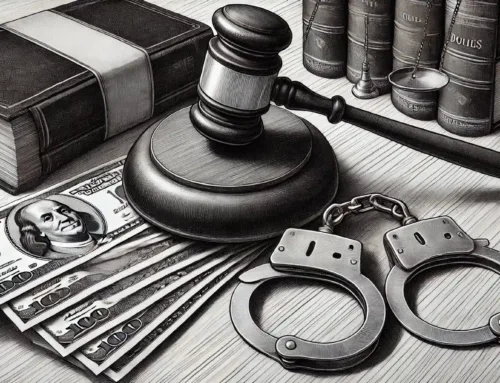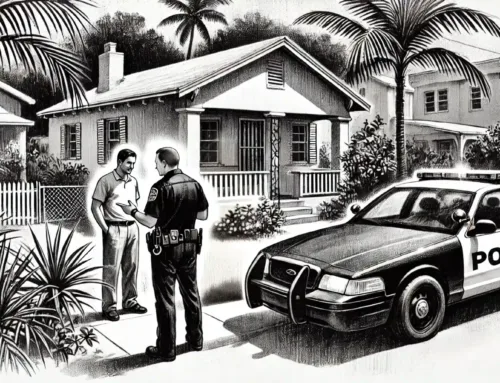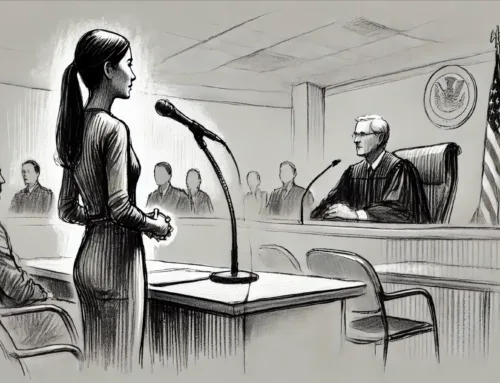Violations of Domestic Violence Injunctions in Miami-Dade County
If you’ve been granted a domestic violence injunction (a restraining order) in Miami-Dade County, it’s important to understand what constitutes a violation and how to report it. While Florida law outlines a specific process for handling violations, Miami-Dade County follows a slightly different procedure. As your experienced Miami criminal defense attorneys, we’re here to guide you.
What is a Domestic Violence Injunction?
Before discussing violations, let’s quickly recap what a domestic violence injunction is. It’s a court order designed to protect victims of domestic violence from their abusers. This legal document prohibits the abuser (respondent) from contacting or coming near the victim (petitioner) and may include other specific restrictions.
Understanding Violations of Domestic Violence Injunctions
A violation occurs when the respondent intentionally disregards the terms outlined in the injunction. Florida Statute 741.31 outlines several ways an injunction can be violated:
- Refusing to vacate a shared dwelling
- Coming within 500 feet of the petitioner’s home, school, workplace, or other specified locations
- Committing an act of domestic violence against the petitioner
- Making unlawful threats or acting violently toward the petitioner
- Contacting the petitioner directly or indirectly (unless specifically allowed by the injunction)
- Coming within 100 feet of the petitioner’s vehicle
- Damaging the petitioner’s personal property
- Refusing to surrender firearms or ammunition if ordered by the court
It’s important to note that the law takes these violations seriously and can result in criminal charges.
Reporting a Violation in Miami-Dade County
Here’s where things differ from the state statute. While Florida Statute 741.31 outlines a process involving the clerk of the circuit court, Miami-Dade County handles things differently:
- If a violation occurs and no arrest has been made, you (the petitioner) should file an affidavit alleging the violation with the clerk’s office.
- The clerk’s office will forward your affidavit to the State Attorney’s Office for review.
- The State Attorney’s Office will evaluate the affidavit to determine if prosecution is warranted.
- If the affidavit alleges a crime, you may be advised to file a separate police report. This step allows a detective to conduct a thorough investigation and assess whether sufficient evidence justifies an arrest.
This local procedure aims to streamline the process while ensuring that the State Attorney’s Office and law enforcement are involved when necessary. It’s a prime example of how local practices sometimes differ from state statutes, so having a knowledgeable local attorney is crucial.
What Happens After You Report a Violation?
Once you’ve filed your affidavit with the clerk’s office, several things may happen:
- State Attorney Review: The State Attorney’s office will review the case. They may contact you for additional information or to advise you on next steps, such as filing a police report if one hasn’t been filed already.
- Potential Law Enforcement Investigation: If a police report is filed, law enforcement will investigate the alleged violation.
- Prosecution Decision: The State Attorney’s office will decide whether to:
- File criminal charges
- Prepare a motion for an order to show cause (why the respondent shouldn’t be held in criminal contempt)
- Continue investigating
- Take some other action
- Potential Court Action: If the court believes you or your children are in immediate danger, they may issue an order appointing the State Attorney to file a motion for an order to show cause.
Consequences of Violating a Domestic Violence Injunction
The penalties for violating a domestic violence injunction can be severe:
- First Offense: Generally, a first violation is a first-degree misdemeanor, punishable by up to one year in jail and a $1,000 fine.
- Repeat Offenses: If someone has two or more prior convictions for violating an injunction and violates again against the same victim, it becomes a third-degree felony. This can result in up to five years in prison and a $5,000 fine.
- Firearms Violations: Possessing a firearm or ammunition in violation of the injunction is a separate first-degree misdemeanor.
- Batterers’ Intervention Program: The court may order the violator to attend a batterers’ intervention program.
- Civil Damages: The victim may be awarded economic damages for any injury or loss resulting from the violation, including costs and attorney’s fees.
How We Can Help
If you’re dealing with a violation of a domestic violence injunction in Miami-Dade County, whether you’re the petitioner or the respondent, our experienced team of criminal defense attorneys can help. Here’s what we offer:
For Petitioners:
- Assistance: in properly filing violation affidavits
- Guidance: on when and how to file police reports
- Help: navigating the legal system and communicating with the State Attorney’s Office
- Representation: in seeking damages for violations
For Respondents:
- Defense: against false accusations of violations
- Negotiation: with prosecutors to minimize penalties
- Representation: in court hearings
Remember, violating a domestic violence injunction is a serious matter with potentially life-altering consequences. Whether you’re seeking to enforce an injunction or defend against accusations of violations, having skilled legal representation is crucial.
Protecting Your Rights and Safety
Domestic violence injunctions are powerful tools for protecting victims, but they’re only effective if properly enforced. If you’re a victim and the injunction against your abuser has been violated, don’t hesitate to act. Follow the Miami-Dade County procedure: file an affidavit with the clerk’s office and be prepared to file a police report if advised to do so.
On the other hand, if you’ve been accused of violating an injunction, remember that you have rights too. False accusations do happen, and the consequences of a violation are too severe to face without proper legal representation.
In either case, our team of experienced Miami criminal defense attorneys is here to help. We understand the nuances of both Florida law and Miami-Dade County procedures. We’ll work tirelessly to protect your rights, whether you’re seeking to enforce an injunction or defend against accusations of violations.
Contact us today for a confidential consultation. Your safety, freedom, and peace of mind are our top priorities.
CALL US NOW for a CONFIDENTIAL INITIAL CONSULTATION at (305) 538-4545, or take a moment to fill out our confidential and secure intake form.* The additional details you provide will greatly assist us in responding to your inquiry.
THERE ARE THOUSANDS OF LAW FIRMS AND ATTORNEYS IN SOUTH FLORIDA. ALWAYS INVESTIGATE A LAWYER’S QUALIFICATIONS AND EXPERIENCE BEFORE MAKING A DECISION ON HIRING A CRIMINAL DEFENSE ATTORNEY ATTORNEY FOR YOUR MIAMI-DADE COUNTY CASE








